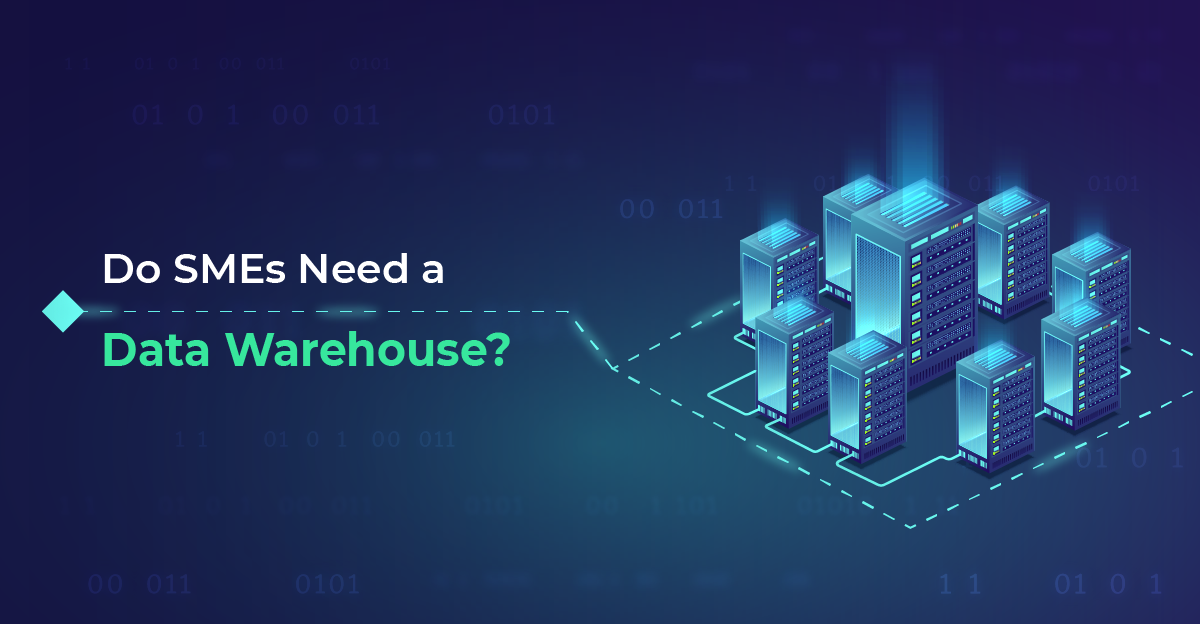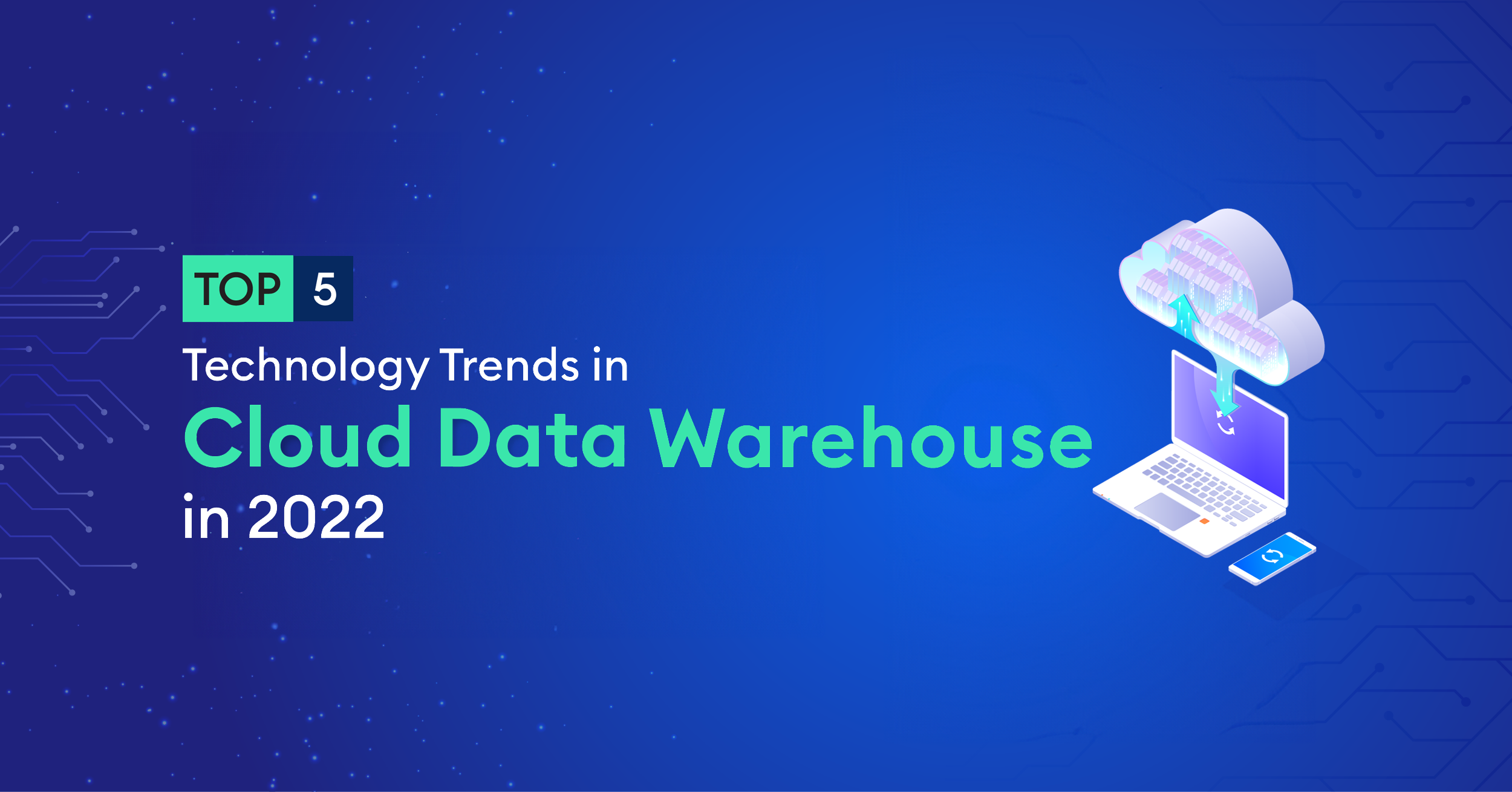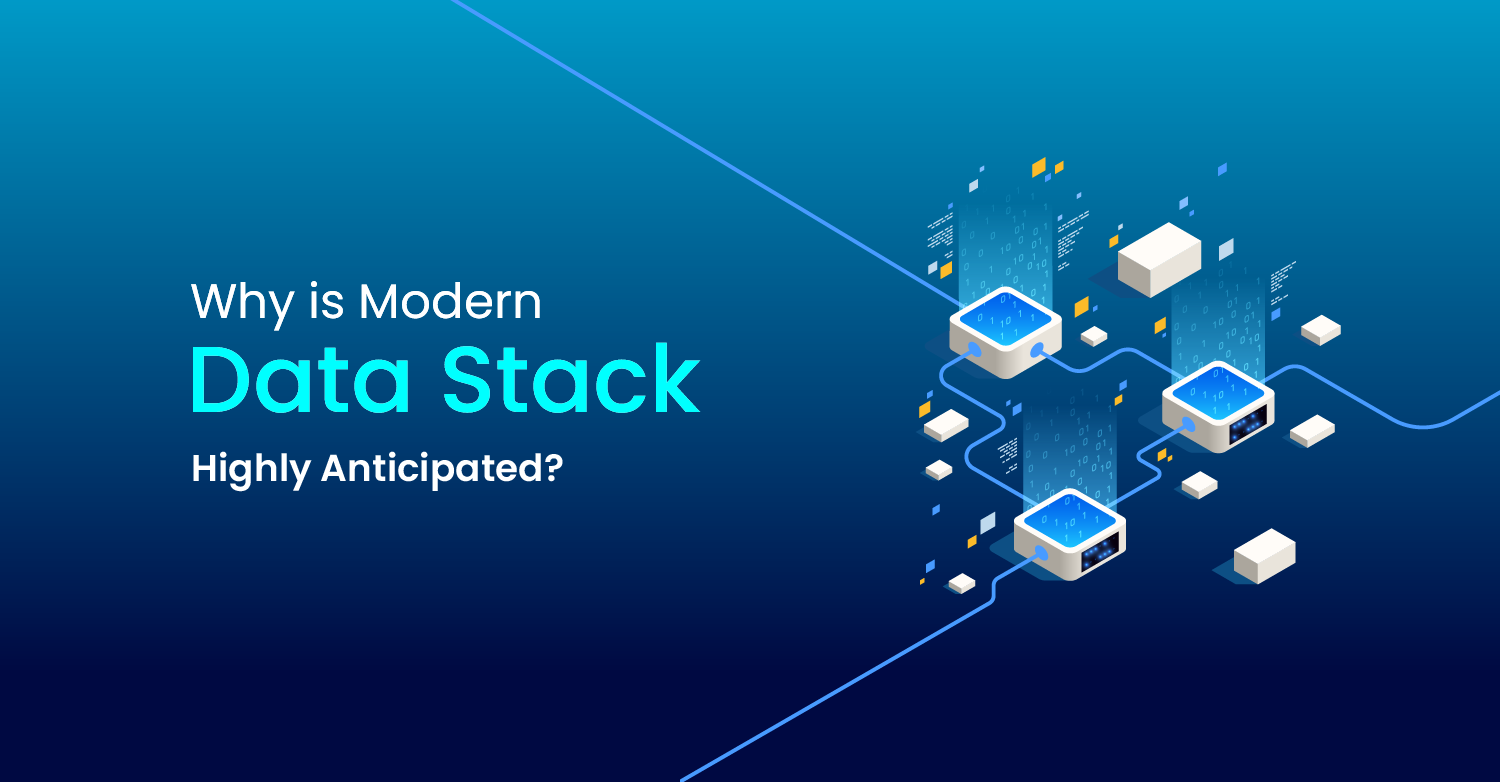Data and Cloud are Niche for AI-based Projects
It wouldn’t be wrong to say that the biggest hurdle to smooth supply chain management is dealing with uncertainties in demand forecasting. This can be ruled out by integrating AI in supply chains to deliver powerful optimization capabilities for more accurate forecasting, capacity planning, higher productivity, and cost-control all while fostering safer work environments.
The biggest challenge in ensuring smooth supply chain management is to deal with uncertainties in demand forecasting. These challenges can be overruled by integrating AI in supply chain management for more accurate forecasting, higher productivity, cost-control and better capacity planning.
When faced with a pandemic like COVID-19, establishing a good understanding of the impact on supply chains and contingency plans can help manufacturing companies deal with uncertainties in the right way.
So, what does AI mean to businesses struggling to make a comeback with their supply chain efficiencies in the forefront?
The pandemic has posed significant challenges in the supply chain, affecting smooth manufacturing and supply of products. In the aftermath of severe disruption, supply chain leaders have become more resilient, collaborative, and networked with customers, suppliers, and other stakeholders. Establishing a good understanding of impacts on supply chain and contingency plans can help manufacturing companies deal with uncertainties.
So, what does AI mean to businesses struggling to make a comeback with their supply chain efficiencies at the forefront?
According to Gartner’s survey of supply chain leaders, AI will have the greatest impact on the supply chain industry through 2025 in the following ways:
- 16% will use automation for better decision-making.
- 21% will improve transportation through automation tools.
AI has now become indispensable to drive businesses efficiently and fetch better ROI. The critical ingredients of AI’s success are cloud and data which when embedded in an AI system can work non-stop, and can scale up and down to meet market demands.
According to PWC’s fourth annual AI business survey, the following values were compared between leaders with and without AI:
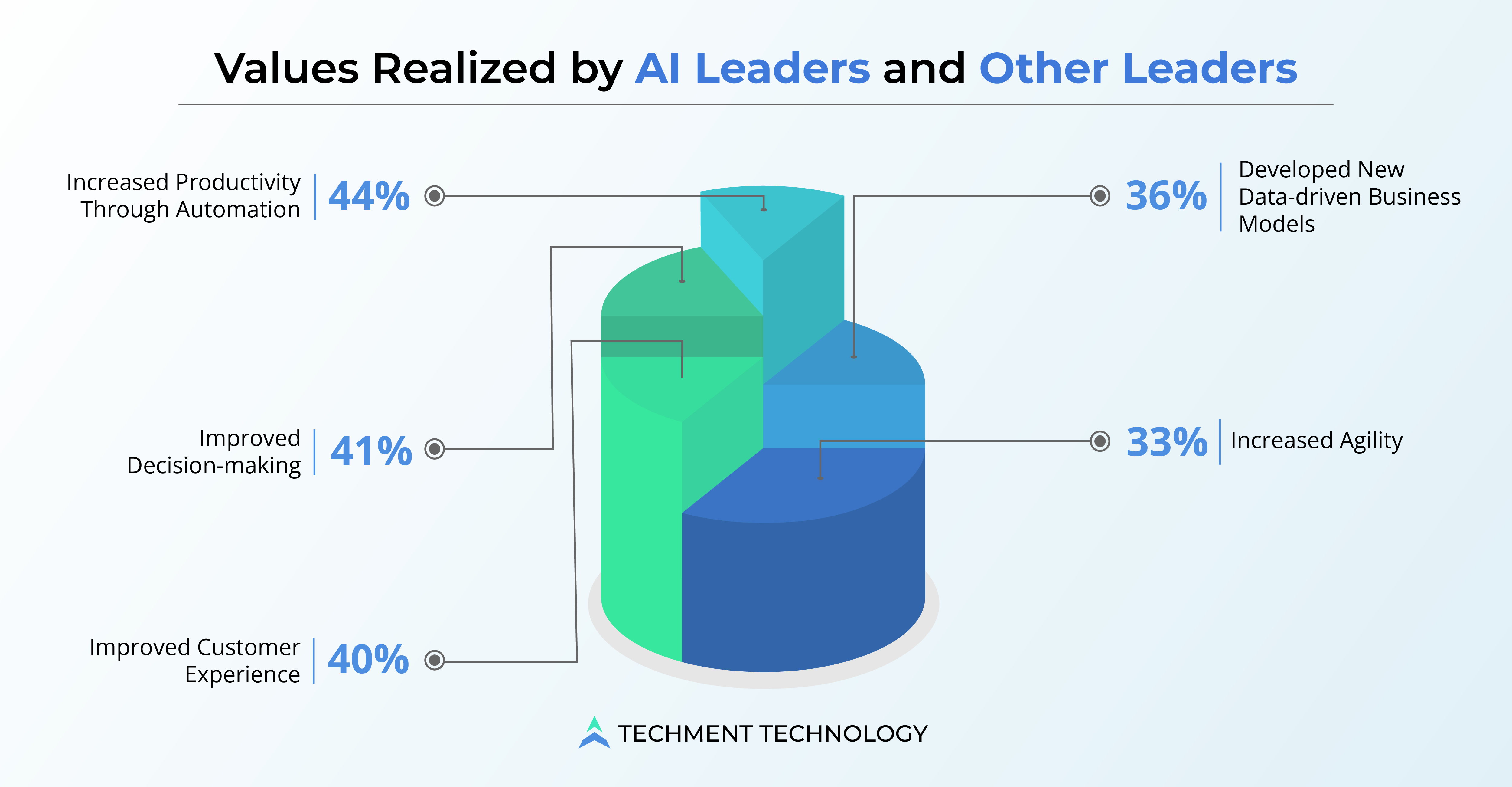
AI has gained much traction in a few years in all industry verticals like healthcare, food tech, manufacturing, banking & financial services, travel, e-commerce, real estate, entertainment, logistics & transportation (shipping), etc. AI renews the demand uncertainty in many sectors to enable forefront transformation.
- AI in the retail and consumer sector revolutionized customer experience by incorporating automation in repetitive tasks and enhanced customer experience.
- In Health & Pharma, clinical trials and drug discovery saw disruption.
- Financial services could mitigate fraud and anti-money laundering.
- Industries saw improved virtual assistance for learning and development.
- Data can help the shipping industries to reschedule delivery by looking into delays and downtimes.
- Customer-facing retailers are using AI to understand their demographics better and make better predictions about future behavior.
To get the best out of AI, businesses must start viewing it as a necessity rather than a luxury, and AI will begin achieving better when organizations repair, rethink, and reconfigure their business models. Here are a few benefits of incorporating AI in the supply chain.
Leveraging AI in Supply Chain
It’s time for the supply chain to empower processes with a reliable and automated data analytics platform, digitizing the supply chain demand planning and execution tracking to push end-to-end solutions.
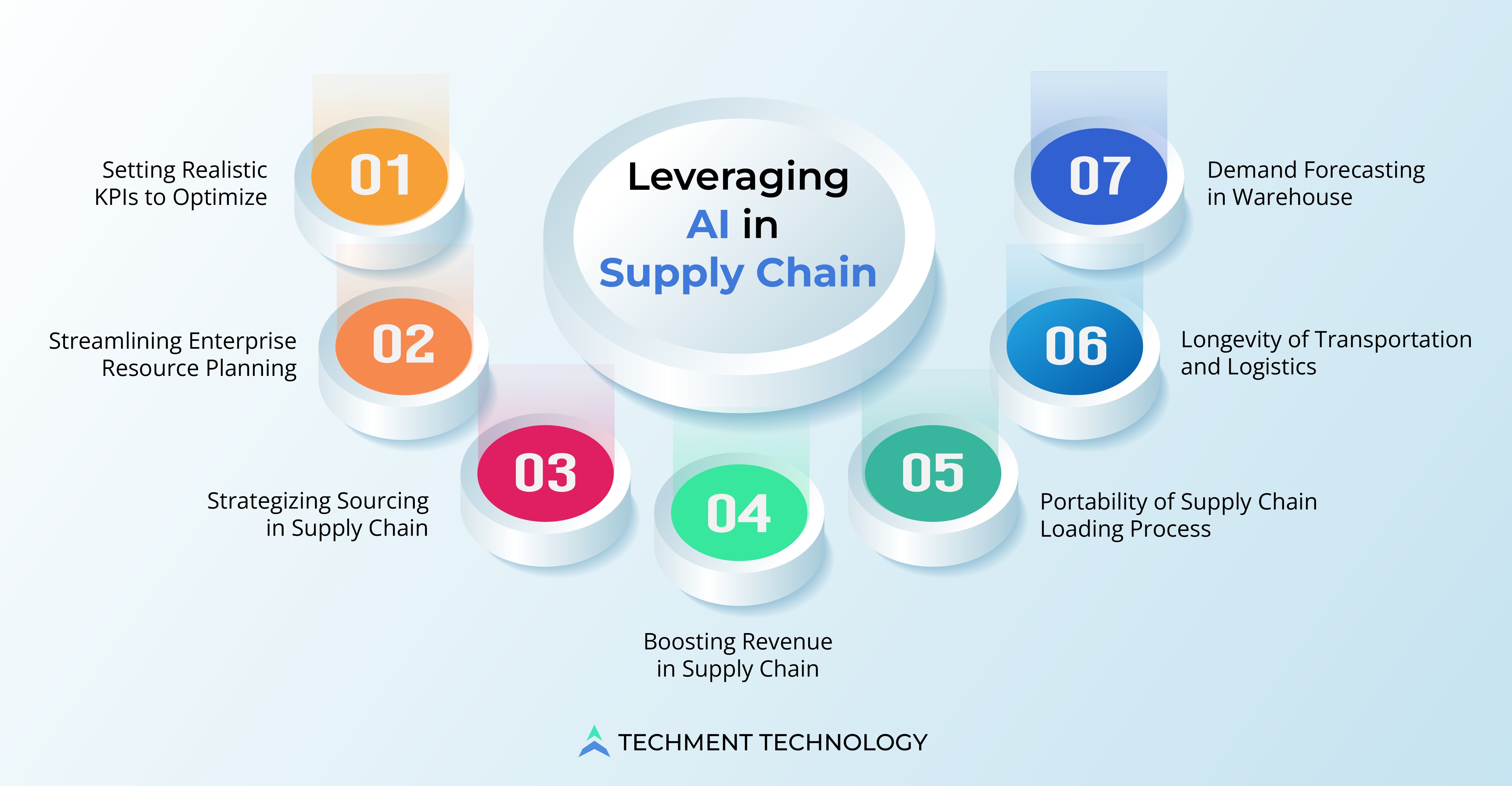
1. Demand Forecasting in Warehouse: In forecasting demand, ML is used to identify patterns and influential factors in supply chain data with algorithms. This data-rich modeling empowers warehouse managers to make educated decisions about inventory. This process uses predictive analytics to analyze historical data to forecast customer demand. Usually, companies use this to avoid inefficiencies caused by misalignment of demand.
ML implementation is trained using internal and external data sources to make such predictions; the benefit is; that ML works on both structured and unstructured data.
2. Longevity of Transportation and Logistics: The ML system integrated into vehicles makes maintenance recommendations and failure predictions based on historical and real-time data. This helps to avoid delays of vehicles due to blockage. With AI, companies can analyze transportation-related data such as on-time delivery, evaluation, and live vehicle tracking to apply ultimate decisions concerning certain suppliers.
3. Portability of Supply Chain Loading Process: Data modeling and AI precision are needed to determine efficient ways of getting the goods on and off the containers. The gathered data is used to design less risky and quick process protocols to manage products.
4. Boosting Revenue in Supply Chain: AI can be used to procure rates, negotiate better shipping, manage carrier contracts, etc. The data platforms guided by AI are capable of mining and analyzing the data to improve cost and efficient revenue-building standards.
5. Strategizing Sourcing in Supply Chain: AI with data analytics is used for identifying critical suppliers and strategic partners. This also provides standardized lower cost alternatives. The advanced self-service AI and analytics enable a high degree of transparency and independency in supply chain business.
6. Streamlining Enterprise Resource Planning: AI in supply chain and logistics helps streamline the ERP framework to make it future-ready and connect people, processes, and data intelligently. AI, when correctly implemented on ERP or other data systems, makes the system more receptive and event-driven over time while processing more data in a better way.
7. Setting Realistic KPIs to Optimize: AI implementation demands an awareness test before implementation with well- thought questions that scrutinize the targets and goals of the proposed implementation. AI can set new KPIs and help understand what would contribute to optimizing a company’s operations.
Integrating AI tools provide actionable insights that eliminate bottlenecks and provide real-time insight. Supply chain companies must build a technology stack that can handle data capture, storage, processing, analysis, and visualization and take advantage immediately.
Conclusion:
Integrated AI Projects Will Elevate ROI in Supply Chain
A growing number of big and small companies are planning to implement AI-driven technologies. It involves two elements, i.e., automation and machine learning (ML), which together will revolutionize supply chain management. The expectation with AI to achieve greater values, is higher than ever. To capture the expected ROI, organizations must look at the sizable technology investments that match organizational changes, business processes, and upscaling limitations.
AI in the supply chain helps professionals with the ability to assess and optimize their supply chain in real-time and helps them overcome what used to take weeks and months to achieve. To increase ROI in the supply chain individual AI projects won’t work; instead, the data analytics in AI must be looked upon to fine-tune the execution.
Techment can help your business derive valuable insights from business data and maximize scalability and performance. We can empower businesses with the best possible services with data visualization, warehousing, and business intelligence. To solve your business problems, get our expert consultation.
 All Posts
All Posts
